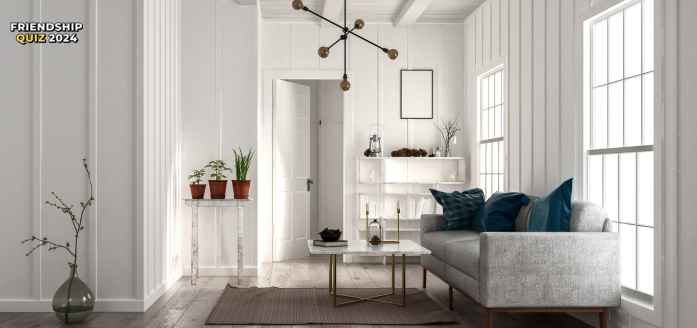In today’s fast-paced world, where we are constantly bombarded with consumerism and the pursuit of more, the minimalist movement has emerged as a refreshing breath of fresh air. This lifestyle philosophy encourages us to declutter our spaces and lives, focusing on what truly matters and letting go of the unnecessary. By simplifying our surroundings and possessions, we create an environment that fosters peace, clarity, and a sense of calmness.
The Allure of Minimalism
The minimalist lifestyle has captured the attention of individuals from all walks of life, seeking to break free from the clutter and chaos that often accompany modern living. At its core, minimalism is about intentional living, where every possession and action holds meaning and purpose. It’s a departure from the societal norms that encourage us to accumulate more and more, often without considering the emotional and physical burden these possessions can bring.
The benefits of embracing a minimalist lifestyle are numerous. By decluttering our spaces, we create a sense of order and tranquility, allowing our minds to focus and our spirits to breathe. Minimalism promotes mindfulness, encouraging us to be present in the moment and appreciate the beauty in simplicity. It also fosters sustainability, as we consume less and reduce our environmental footprint.
The Journey Begins
Decluttering The first step in embracing a minimalist lifestyle is to declutter our living spaces. This process can be daunting, as it requires us to confront our attachment to material possessions and let go of items that no longer serve a purpose or bring us joy. However, the rewards of this endeavor are well worth the effort.
When embarking on the decluttering journey, it’s essential to approach it with patience and mindfulness. Start by assessing your space and identifying areas that feel cluttered or overwhelming. Then, begin the process of sorting through your possessions, categorizing them into “keep,” “donate,” and “discard” piles.
As you sort through your belongings, ask yourself a few simple questions:
- Have I used this item in the past year?
- Does this item serve a practical purpose or bring me genuine joy?
- Is this item in good condition, or is it damaged or worn out?
- Do I have an emotional attachment to this item, or is it just taking up space?
By answering these questions honestly, you’ll gain clarity on what truly holds value in your life and what can be let go.
The Art of Letting Go
One of the most challenging aspects of decluttering is learning to let go. We often form emotional attachments to our possessions, associating them with memories or sentiments. However, it’s important to recognize that the memories themselves are not tied to the physical objects. By holding onto these items, we may be inadvertently cluttering our living spaces and weighing ourselves down with unnecessary baggage.
Embrace the concept of “less is more” and consider the liberating feeling of letting go. Donate items that are still in good condition to those in need, or sell them to generate extra income. For items that are no longer usable, properly dispose of them in an environmentally responsible manner.
Creating a Minimalist Home
Once you’ve decluttered your living space, it’s time to create a minimalist home environment that reflects your newfound simplicity. This doesn’t necessarily mean stripping your home of all personality and warmth; instead, it’s about curating a space that is intentional, functional, and serene.
Start by incorporating clean lines, neutral colors, and natural materials into your decor. Opt for furniture pieces that serve multiple purposes, such as storage ottomans or multi-functional coffee tables. Embrace negative space and avoid overcrowding your rooms with too many knick-knacks or decorative items.
When it comes to storage solutions, invest in high-quality, minimalist-friendly options that keep your belongings organized and out of sight. Clear storage containers, built-in shelving, and multifunctional furniture can help maintain a clutter-free aesthetic while keeping your essentials within reach.
Cultivating Minimalist Habits
Embracing a minimalist lifestyle extends beyond decluttering and curating a minimalist home; it’s also about adopting habits and mindsets that align with the principles of simplicity and intentionality. Here are some tips to help you cultivate minimalist habits:
- Practice mindfulness: Be present in the moment and aware of your thoughts, emotions, and actions. This mindful approach will help you resist the temptation to mindlessly consume or accumulate possessions.
- Reduce consumption: Before making a purchase, ask yourself if you truly need the item or if you’re simply being influenced by marketing tactics or societal pressures. Adopt a “quality over quantity” mindset and invest in products that are built to last.
- Simplify your routines: Streamline your daily routines and eliminate unnecessary tasks or activities that do not add value to your life. Focus on the essentials and let go of the rest.
- Embrace experiences over possessions: Shift your priorities from acquiring material goods to creating meaningful experiences and memories. Invest in activities that enrich your life, such as travel, education, or spending quality time with loved ones.
- Practice gratitude: Cultivate a sense of gratitude for the things you already have, rather than constantly seeking more. Appreciate the simplicity and beauty in your life, and let go of the need for excess.
The minimalist lifestyle is not merely a trend or a passing fad; it’s a conscious choice to live with intentionality and purpose. By decluttering our spaces and embracing simplicity, we create room for what truly matters – our relationships, our passions, and our overall well-being. Embrace the journey towards minimalism, and experience the freedom and serenity that comes with living a life unburdened by excess.



